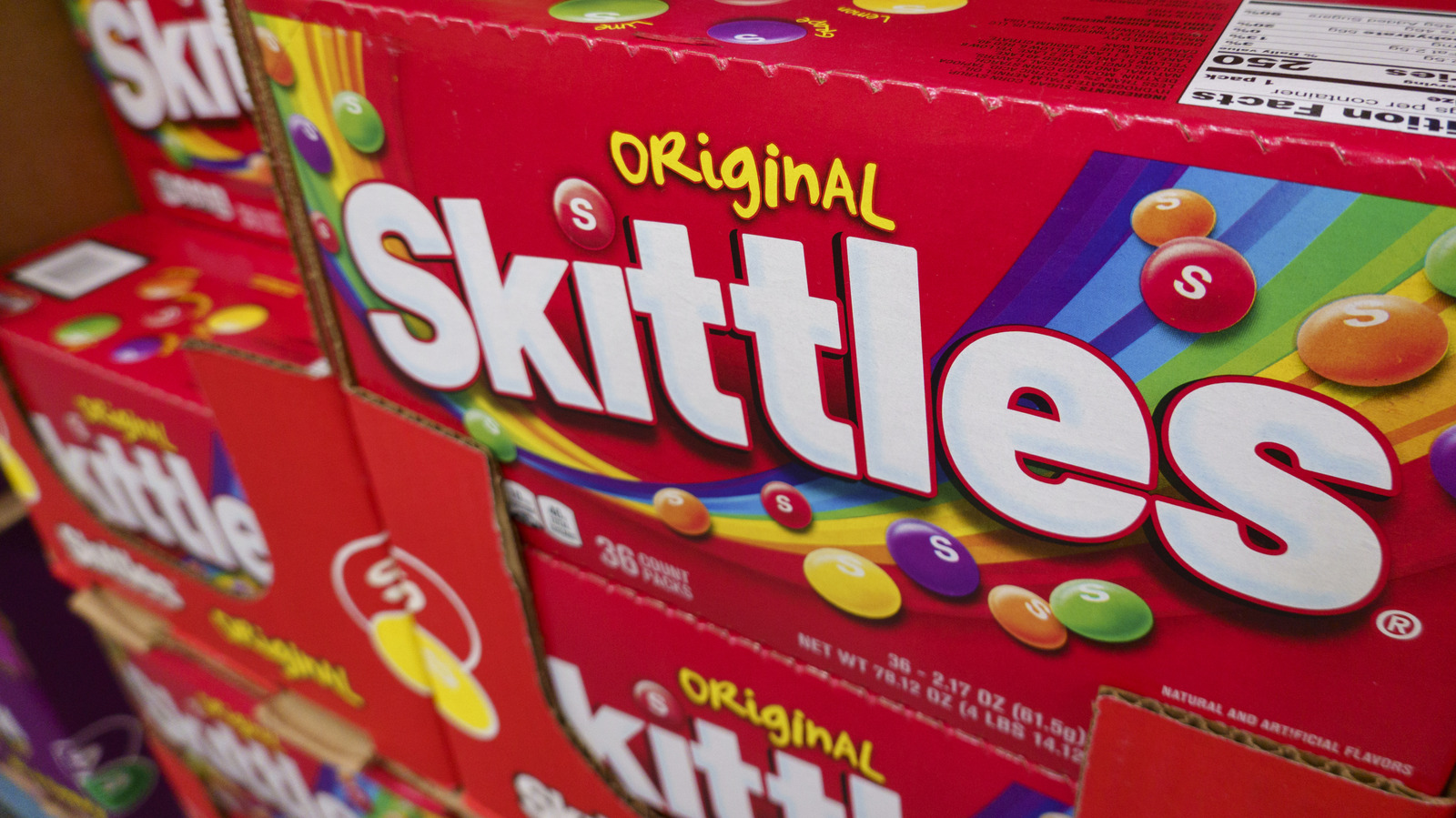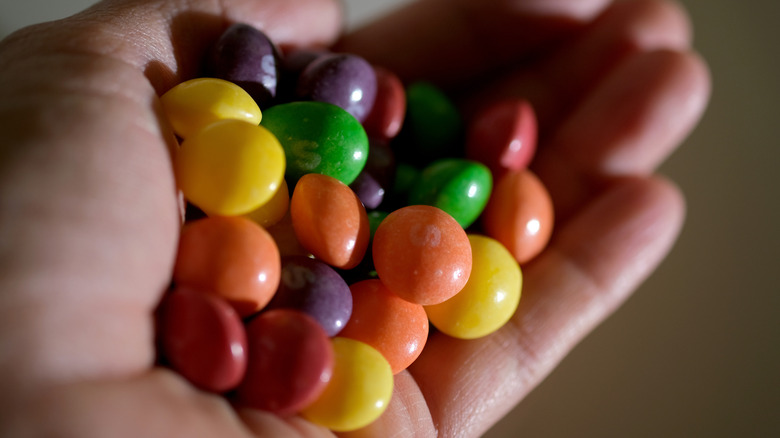Mars Inc., the company responsible for classic candies like Snickers, Twix, and M&M’s, announced that it will be removing titanium dioxide, or TiO2, from its most colorful product: Skittles. The decision was confirmed in a report to Bloomberg News where the company revealed that it stopped using TiO2 in Skittles production at the end of 2024. Packages containing TiO2 will remain on shelves until the candies are sold out, and customers can expect that any Skittles made from 2025 onwards will be TiO2-free.
The decision to remove TiO2 from Skittles comes after years of public outcry both within the United States and abroad, and nearly a decade after Mars Inc. pledged to remove the ingredient from all productions. Titanium dioxide is a naturally occurring ingredient mined from the earth; it’s used in a variety of food-based products to make items whiter, shinier, and brighter. So, essentially, it turns that mildly green Skittle into a shiny, neon green eye-catcher that really plays up that whole “taste the rainbow” slogan. It doesn’t particularly affect the flavor of foods, so there’s no telling how it will change the taste or quality of Skittles, but either way, the little sweets will still make the perfect candy addition to elevate your next bowl of popcorn.
Why titanium dioxide in Skittles has raised safety concerns
The use of titanium dioxide in Skittles made headlines back in 2022 when a California woman sued Mars Inc. and Skittles for the use of a “known” toxin in its candies and an inadequate warning about the risks of said toxin. Mars Inc. continued using TiO2 in Skittles, complying “with FDA regulations” according to a spokesperson who spoke with TODAY at the time. Although well-known for its use in the rainbow-colored Skittles, TiO2 is used in thousands of other candies. It can also be found in baked goods, coffee creamers, gum, and even sunscreens. Given its nature, TiO2 is solely used for aesthetic purposes.
Despite the controversy, titanium dioxide is not banned in the United States and is technically labeled as “safe” for human consumption by the Food and Drug Administration following strict quantity regulations. Conversely, many recent studies from across the globe have identified TiO2 as a harmful additive, such as a report from the European Food Safety Authority (EFAS). In 2021, EFAS released information that determined TiO2 could no longer be deemed “safe when used as a food additive,” as their study found the ingredient to be linked to immune system damage, increased inflammation, and possible structural changes to DNA. In 2022, the European Union banned the use of titanium dioxide completely and the FDA is currently reviewing a petition to ban usage in the U.S.






